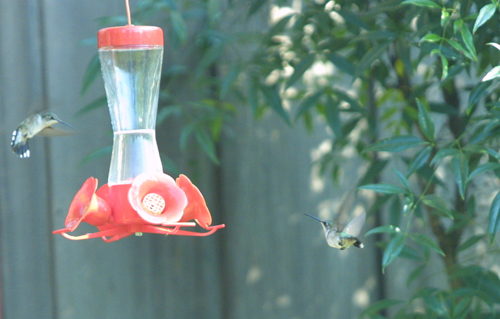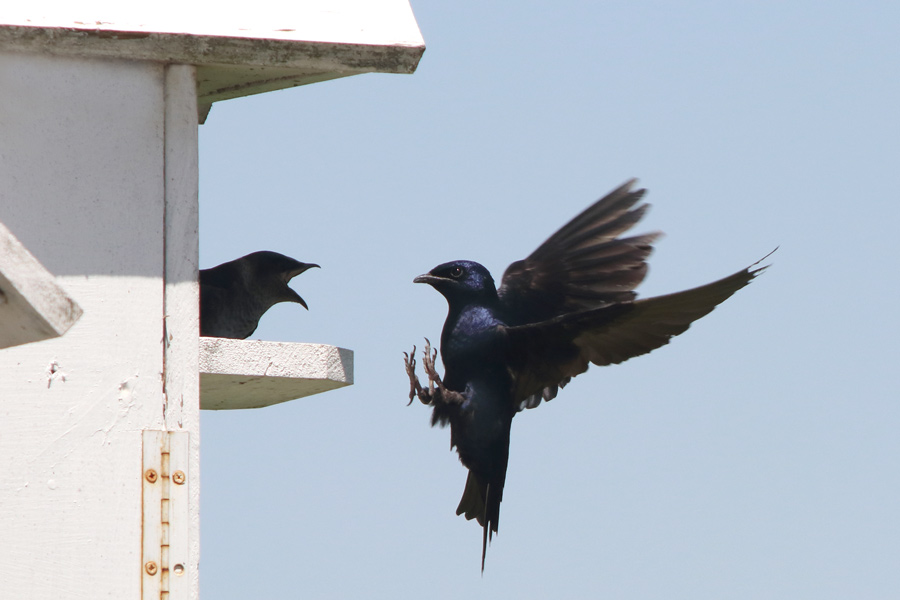Disoriented fake birds flying into a newly cleaned window may make you chuckle on a television commercial. But, in reality, it’s no laughing matter.
Every spring, University of Georgia Cooperative Extension offices receive calls from homeowners who have a problem with birds that seem to be attacking their car windows or mirrors.
If we could witness the scene from the bird’s point of view, the real cause of the bird’s behavior would be clear. We would see what the bird sees: its reflection in the windowpane.
Guarding their territory
Springtime is when birds are preoccupied with mating, nest building and rearing young. Male birds are trying to establish territories for nesting sites. This instinct sometimes results in them attacking other male birds that are invading the territory.
When a male bird flies into a window, it’s trying to attack another male bird.
Actually, it’s attacking a reflection of itself. A bird may knock itself out by this repeated window attack. Often, they make a literal “bird mess” of cars and windows.
Several types of birds may do this from time to time, and some birds are more territorial than others. However, robins and cardinals are probably the most common and are known to attack house windows, car mirrors, hubcaps and shiny bumpers if they see their reflection in them.
The attacks can last for several days or as long as a few weeks until the bird realizes the threat is not real. This behavior is particularly prominent during the breeding season, but can sometimes happen at other times of the year.
One option for dealing with this issue is to simply stop washing your car. If your mirrors and windows stay too shiny, they are more likely to attract an angry bird defending its territory.
Another option is to place a tarp or protective cover over the car’s mirrors and windows for a few weeks until the angry bird decides to move on. As a last resort, park the car in a different location to minimize reflections on the glass or move it to a garage.
One reason not to wash your car
For windows on houses, it may be necessary to apply a non-reflective covering or tinted film to the outside of the window. If you choose to cover the windows, it is the outside that must be completely covered.
A medium-weight, plastic painter’s drop cloth, which is available at most hardware stores, works well. The plastic is clear enough to allow light into the room, but it is cloudy enough to eliminate reflections.
When the outside of the glass is covered, the bird may go searching for its imaginary rival at other windows. There have been reports of robins attacking as many as 15 windows on both the first and second stories of homes.
Do not waste money on fake owls or rubber snakes, which supposedly frighten birds. The rival bird will still be visible in the window, and territorial birds quickly learn that these artificial critters pose no threat.





